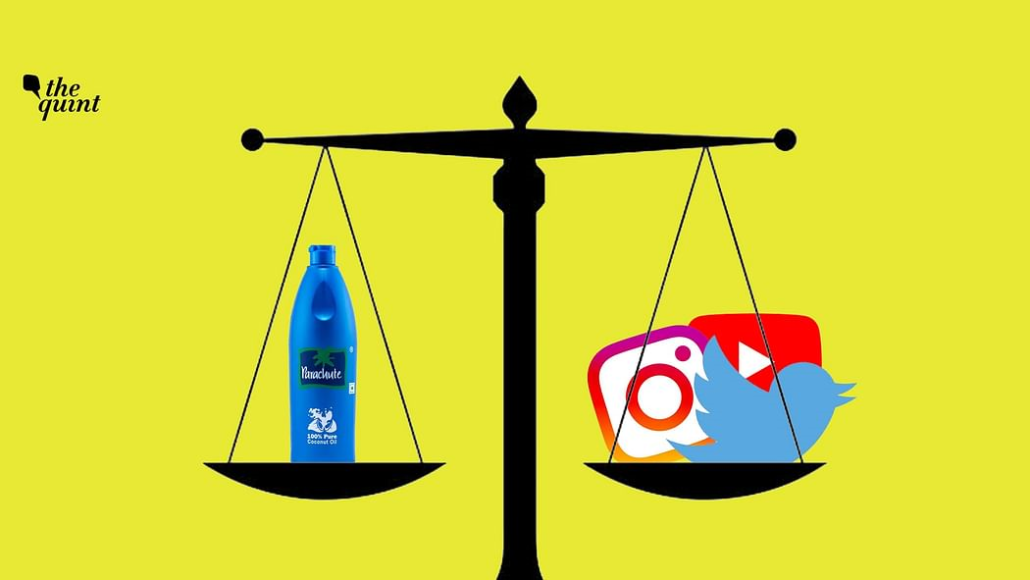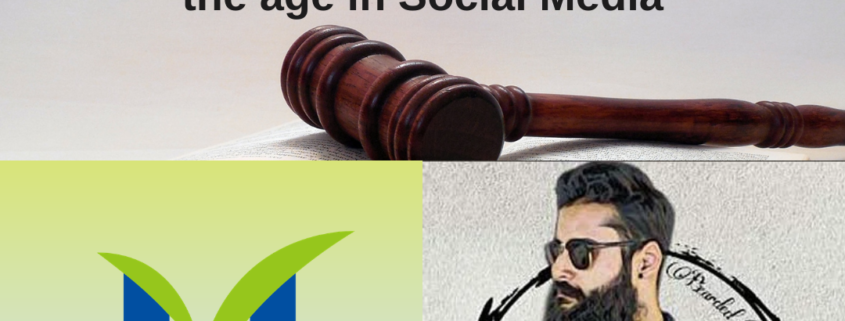Marico v. Abhijeet Bhansali: Influencers and Brand Protection in the age in Social Media
In the early part of 2020, the Bombay High Court was called upon to adjudicate a matter involving a social media influencer. The Bombay High Court’s judgement in the case of Marico Limited v. Abhijeet Bhansali[1] determines the nature of social media influencers’ relationship with marketers and followers/subscribers had an impact on the court’s decision. In the case above mention wherein the Learned Single Judge of Hon’ble High Court of Bombay Justice S. J. Kathawalla restrained by an order of temporary injunction a social media influencer concerning a video in which he reviews a branded Coconut Oil and compares it with Virgin Coconut Oil. The Learned Single Judge found the Video to be false and disparaging. The Influencer in question filed an appeal which reversed the findings of the Learned Single Judge subject to certain modification in the video.
Brief Facts
Plaintiff, one of the biggest FMCG companies in India and one of Plaintiff’s products, Parachute edible coconut oil, was claimed to be amongst the most reputed brands owned by Plaintiff. Defendant, a YouTuber had his channel titled ‘Bearded Chokra’. On or about 1st September 2018, Defendant published a video titled ‘Is Parachute Coconut Oil 100% Pure?’. In this video, Defendant reviewed Plaintiff’s product. In the mentioned video the defendant is forceful, decisive and assertive with his words and statements against PARACHUTE branded coconut oil. He explains that it is one of the most sold and consumed coconut oils in India and that he was going to “break down all the tiny details” about the product and “bring the truth” to the viewers. Plaintiff filed the present suit claiming that Defendant made false claims and statements about Plaintiff’s product.
Summary of Plaintiff’s arguments
The Impugned video provided incorrect information and deceived the viewer into believing that the tests conducted substantiated the claim of the defendant that the plaintiff’s product was of inferior quality and/or is inferior to other oils, subsequently, the impugned video as a whole was disparaging and denigrating in nature. The video also maliciously published by the defendant comprises words and visuals in respect of the plaintiffs’ product, which were false and which have not only denigrated the plaintiff’s product but also caused and likely to further cause special damage to the plaintiff. Since the defendant claims that creation and publication of such videos is his occupation and source of livelihood, the defendant’s review cannot be equated or treated at par with any other review provided by an ordinary consumer since the intention of an ordinary consumer is not to generate viewership or hits and consequently earn revenues from the impact created by the Impugned Video. Hence, the acts of the defendant fall under the category of ‘commercial activities and not a general review of the product by an ordinary consumer. The defendant also in his video promoted a competing product in substitution for the product of the plaintiff and urged the viewers to stop using the plaintiffs’ product and attempted to promote two other competing products by providing links for purchasing these products from online retailers such as amazon. Consequently, Defendant’s actions satisfy all ingredients to constitute disparagement, slander of goods, and malicious falsehood.
Summary of Defendant’s Arguments
There was no malicious intent from the defendant’s side and the purpose of the video was only educational in nature. The defendant remarks that the plaintiff has used a trick of showing a wet coconut alongside its product to fool consumers into thinking that its product was derived from wet coconut instead of copra. Subsequently, the defendant’s offer to delete certain parts of the video was made as a concession to settle the dispute and was not an admission. Upon buying products from clicking on the link mentioned by Defendant, Defendant receives a commission from the online site not the competitors of Plaintiff. However, Defendant’s recommendations and review videos in the past have been made without receiving any commission. Plaintiff uses the term ‘coconut oil’ when they are selling copra oil which is of inferior quality. Statements made by Defendant in the Impugned Video are true and constitute bona fide opinion and is guaranteed by Article 19(1)(a) of the Indian Constitution. Defendant’s statement that Plaintiff’s oil’ is of an inferior quality to other organic cold-pressed coconut oils’ is correct and per the scientific literature. Some of the words of Defendant such as that the smell of Plaintiff’s product is akin to a dried or rotten coconut’ were used for exaggeration and were not to be taken literally. An action for disparagement/malicious falsehood/slander of goods can only be against a trader or a competitor.
Observations by the Single Bench

The Single Bench stated that the defendant being a ‘social media influencer’ bears a higher burden to ensure there is a degree of truthfulness in his statements and added that a social media influencer cannot deliver statements with the same impunity available to an ordinary person. The court on the statements made by the defendant remarks that in the impugned Video, Defendant has made use of forceful statements and thus has portrayed himself as an expert who has undertaken extensive research. The literature relied upon by Defendant pertains to gauging the quality of ‘Virgin Coconut Oil’ and thus inapplicable to the present case. The court on the question of whether the Defendant had any reason to believe that the statements he made were true since there is material in respect of Plaintiff’s product to demonstrate that such belief was possible. And thus, Defendant’s statements have been made with recklessness and without caring whether they were true or false. On the defendant’s fundamental right to free speech the court observed that Defendant has afforded no explanation for using the term ‘rotten coconuts. Later in his video, Defendant has once again insinuated that Plaintiff’s product might be made from poor quality coconuts.
In an action for disparagement/malicious falsehood/slander of goods, it is irrelevant whether the Defendant is a trader or not so long as the necessary ingredients are satisfied. Fundamental rights cannot be abused by any individual by maligning or disparaging the product of others.
Observations in the Appeal by the Division Bench[2]
The Appeal by Abhijeet Bhansali was allowed with some minor modifications to the video. However, the dominant message conveyed by the video was not restricted.
On Freedom of Speech the Division Bench stated the statements of facts or statements of opinions or defamation, where a person asserted a matter of fact, it cannot be restrained from expressing himself. In cases of opinions or subjective issues, different considerations apply. Whether a statement is a fact or opinion depends upon whether the consumer can verify the statement. If yes, the same cannot be treated as an opinion. If an opinion is based on disclosed non-defamatory facts, action against it is not maintainable, irrespective of how unreasonable or derogatory the opinion is. However, if an opinion is based on undisclosed or implied facts, the support of an action depends on the understanding of the statement. If the recipient reasonably believes the truth of an undisclosed or implied defamatory fact about the subject of the statement, the speaker is liable for making a defamatory statement. Admittedly, Respondent’s product is not extracted from fresh coconut oil and it uses an expeller pressed process. This results in a yellowish tint and a strong odour. Thus, Respondent accepts statements of facts made by Appellant that the suggested claim of Respondent that its oil is extracted from fresh coconut, is false.
The Division Bench also opined on the errors made in the decision of the single bench. Learned Single Bench has wrongly held that the Appellant has compared Respondent’s product with an unknown product which was a virgin coconut oil. The Single Bench has overlooked the fact that even the Respondent had claimed its oil to be virgin coconut oil. The only error committed by the Appellant is to refer to the exemplar oil as organic coconut oil because the reference is to virgin coconut oil, but this is a trivial error and does not mislead the viewer who would clearly understand that the essentiality of the presentation is that Respondent’s product is not extracted from fresh coconuts and that the expeller pressed process is used to extract the oil from Copra.
References
[1] 2020 (81) PTC 244 (Bom).
[1] Commercial Appeal (L) No. 31 of 2020.







 Users This Year : 3858
Users This Year : 3858

Leave a Reply
Want to join the discussion?Feel free to contribute!